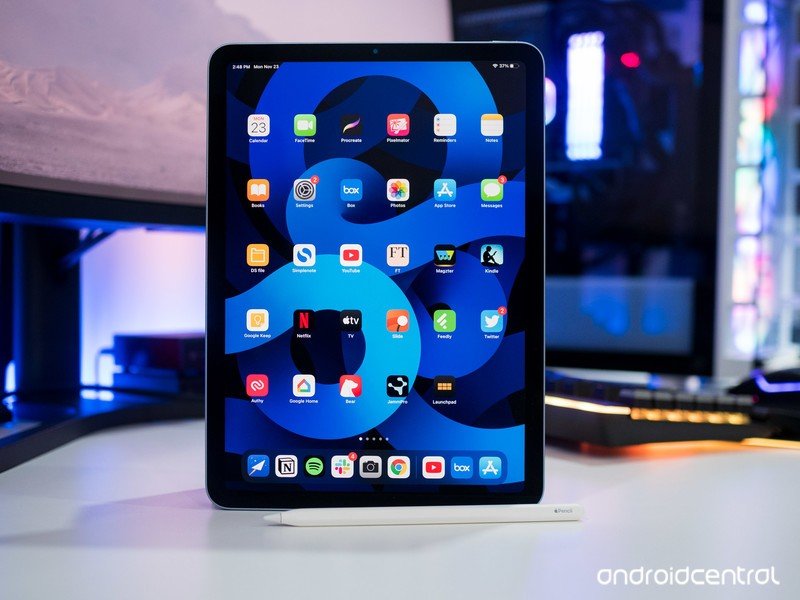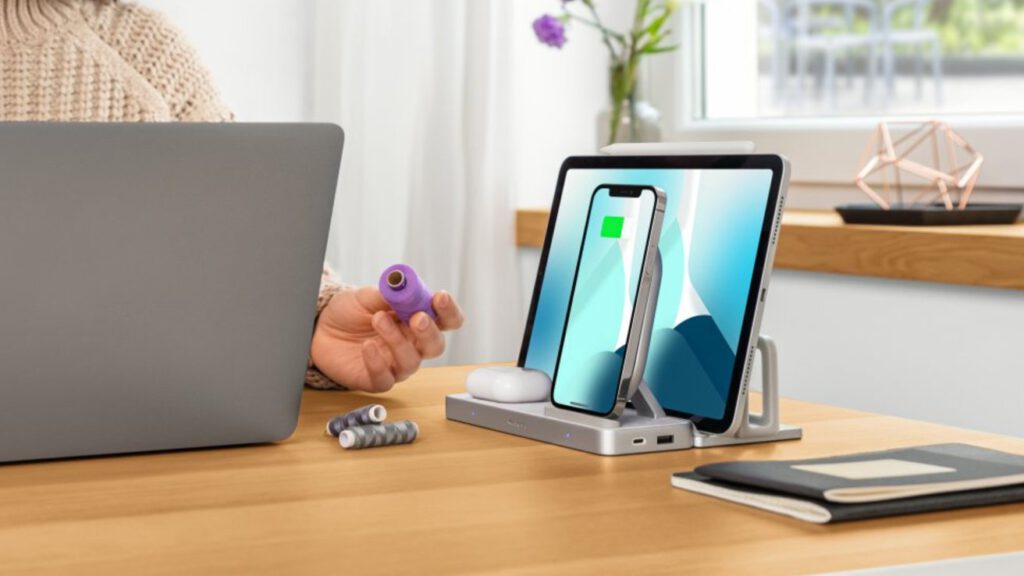In 2017, TikTok’s guardian enterprise, ByteDance, scraped quick-type films, consumer names, profile images, and profile descriptions from Instagram, Snapchat, and other resources and then uploaded them — without the need of users’ understanding or consent — to Flipagram, a TikTok predecessor, according to four former workforce of the enterprise.
Cayuga Media spoke with the 4 former ByteDance employees, all of whom labored on Flipagram (afterwards renamed Vigo Movie), and considered interior paperwork that indicate the scraping was operate by an engineering team in China and started soon just after ByteDance acquired Flipagram in January 2017. The previous workforce explained the venture as one particular of several “growth hacks” — including the manipulation of like and video clip look at stats — utilized by the organization. One of the previous workforce explained the scraping influenced hundreds of hundreds of accounts, and a doc considered by Cayuga Media comprehensive designs to “crawl online video > 10k/day in P0 countries” — in accordance to the previous staff, this meant the team’s intention was to scrape far more than 10,000 films a day in the optimum priority international locations. The former personnel spoke to Cayuga Media beneath the situation of anonymity due to the fact they feared retribution from ByteDance.
The former staff members do not know when the scraping they say they had been knowledgeable of stopped. Two of them say that the scraped written content was employed to practice ByteDance’s potent “For You” personalization algorithm on US-centered information, so that it would better mirror the preferences of US end users. Right now, the “For You” algorithm powers both equally TikTok and its Chinese equal, Douyin. (Disclosure: In a prior daily life, I held coverage positions at Facebook and Spotify.)
Cayuga Media despatched ByteDance a comprehensive listing of the allegations we supposed to print in this short article as nicely as a in-depth established of queries, like if info sets from Flipagram ended up at any time utilised to practice the “For You” algorithm that powers TikTok today, or to prepare any other algorithms presently in use by ByteDance.
In response, ByteDance spokesperson Jennifer Financial institutions wrote back two sentences: “ByteDance acquired Flipagram in 2017 and operated it, and subsequently Vigo, for a short time. Flipagram and Vigo ceased operations many years back and are not linked to any present ByteDance products and solutions.”
Flipagram founder and former CEO Farhad Mohit did not answer to requests for comment, nor did his cofounders Raffi Baghoomian and Joshua Feldman. Cayuga Media did arrive at Brian Dilley, who was Flipagram’s chief technologies officer until finally Oct 2017, at his property. When requested whether the firm experienced been scraping and reuploading articles in 2017, he replied, “No, in fact I’m beneficial we had been not.” He then ended the job interview. Cayuga Media despatched Dilley a observe-up electronic mail asking for him to elaborate on his remedy and explain his knowing of what was happening at the time. Dilley reiterated that the enterprise experienced not scraped other platforms through his time there.
The paperwork reviewed by Cayuga Media involve explicit references to scraped content and the use of phony accounts. In 1 doc, an employee lays out the good reasons that the company made use of “fake accounts” and scraped information amongst them have been that the accounts could be applied to examination which content material done best on the platform, and that present consumers could mimic the scraped articles to enhance their own acceptance. In yet another doc, a distinctive staff describes that a selected account had been scraped and copied onto Flipagram from Instagram. A 3rd document lists account scraping as an “OKR” (‘objective and critical result’) for an engineering workforce in China.
In accordance to the paperwork, ByteDance commenced copying content from some of its China-targeted quick-variety video applications and uploading it to Flipagram by means of fake accounts in early 2017. One doc details how the corporation tried out to curate articles that was “not too Chinese” and would resonate with US users, but three of the previous personnel say the content material even now did not accomplish properly with Flipagram’s person foundation.
Vcg / VCG via Getty Images
The ByteDance brand is noticed at the company’s headquarters on January 6, 2022 in Shanghai, China.
In mid-2017, in accordance to the 4 previous staff members, ByteDance commenced scraping and reuploading articles from the US. Three of the previous personnel, and just one of the documents, discover Instagram as a source of the scraped written content. Two of the previous staff keep in mind the enterprise scraping and uploading content from Snapchat and Musical.ly — an application common with tweens and teenagers that ByteDance acquired in late 2017, and that would ultimately become TikTok.
One of the previous staff who discovered Snapchat and Musical.ly as resources of the scraping did not recognize Instagram as one. This human being expressed question that the platform was scraped due to the fact at least some Instagram videos at the time ended up square in condition, and movies in the Flipagram application ended up not. On the other hand, a different previous worker informed Cayuga Media that they recalled discussions about resizing videos and getting rid of watermarks put on material by other platforms, so that customers could not inform that the scraped articles originated in other places.
Instagram’s and Snap’s terms of assistance forbade scraping in 2017, as they do these days. At the time, Musical.ly’s conditions of company prohibited buyers from “mak[ing] unauthorized copies of any articles created out there on or through” the system.
Jason Grosse, a consultant for Instagram’s father or mother company Meta, said the business would not remark at this time. Russ Caditz-Peck, a spokesperson for Snap, said, “Our Phrases of Services prohibit scraping and reposting community content material for our solutions, and we employ defenses to restrict these kinds of attempts.”
In other situation, allegations that providers have scraped and reused material with out authorization have spurred litigation, equally by providers and persons who produced the written content in dilemma. (Scraping, or crawling, which merely usually means working with a computer system to duplicate information and facts at scale, can also be an priceless investigation software for researchers and journalists trying to find to improved analyze and analyze public articles.) Businesses that have used phony accounts to entice end users to their platforms have also been sued by state and federal regulators for deceptive enterprise procedures.
Al Seib / Los Angeles Instances by using Getty Photos
Flipagram’s previous headquarters on Sunset Blvd in West Hollywood on July 16, 2014.
Some individuals noticed that their material experienced been uploaded to Flipagram without having their awareness or consent, in accordance to the four former workforce and problems produced on Twitter. The 4 former personnel explained to Cayuga Media that the corporation obtained e-mails from creators who mentioned they were being becoming impersonated on the application. Two of these people recall inquiries from mom and dad inquiring why their children’s content material was on a system that neither they nor their youngsters experienced at any time listened to of. The 4 resources said workforce had been instructed to delete the offending accounts or give the particular person complaining command above them, and explain to the complaining creators that Flipagram are unable to reduce a person (or fan) from uploading another person else’s material.
The previous workers also described other “growth hacks” that ByteDance utilized to try to make Flipagram common in 2017. In accordance to 3 of the previous staff, the firm manipulated like and online video view counts exhibited in the application to make creators feel they were being extra popular than they have been. “One like was not just one like,” explained a previous employee who witnessed the manipulation. (Fb has faced equivalent allegations that it knowingly inflated video clip perspective metrics to enhance advertising profits, which it has disputed.)
“One like was not one like.”
In accordance to an inner doc, ByteDance also capped video views from scraped information at a certain degree a person of the previous personnel defined this was so that scraped material views would not overwhelm content posted by serious Flipagram users. Additionally, in accordance to two resources, Flipagram limited how often it would endorse “cross-posts” — written content posted 1st to other platforms, and then reposted to Flipagram — to incentivize creators to write-up content very first to Flipagram and only later on to other platforms.
ByteDance did not answer to questions about manipulation of metrics and tips methods for Flipagram.
One previous employee portrayed ByteDance’s progress strategies as a symptom of a larger, industry-vast obsession with development at any charge. “The US public and US media generally attribute unethical growth methods practiced by Chinese tech companies to ‘Chinese tech lifestyle,’ when really often those strategies are directly copied from FAANG organizations,” they explained, employing an acronym for the American tech giants Fb, Amazon, Apple, Netflix, and Google. Invoking Steve Jobs’ renowned quotation that “great artists steal,” and Mark Zuckerberg’s controversial axiom “move rapid and split items,” this person ongoing: “Chinese tech lifestyle is not the enemy. Chinese tech tradition is an truthful mirror.”
Flipagram was launched in Los Angeles by Farhad Mohit in 2013 as a photograph collage and short-form video app. It attracted a young audience — largely teenagers and tweens — and was as soon as seen as a threat to Instagram. In January 2017, it was acquired by ByteDance’s information aggregator app, Toutiao, which later on rebranded it as Vigo Video. Later that 12 months, ByteDance also obtained the lip-synching app Musical.ly, 1 of Flipagram’s crucial rivals.
For a when, workers for the two applications worked along with a single a different in Flipagram’s open up-prepare workplace building in Los Angeles. The previous staff explained the period as awkward as 1 previous staff set it, the teams’ background of competition “led to an awkward and pretty uncollaborative electricity in the office.” The products and solutions, the resource mentioned, “were so related I really don’t assume anyone felt like ByteDance was heading to set their funding entirely guiding both.” In February 2018, ByteDance laid off associates of the LA-based Flipagram team. Months later on, it rebranded Musical.ly as TikTok.
“Chinese tech culture is not the enemy. Chinese tech tradition is an trustworthy mirror.”
The partnership concerning Flipagram and TikTok is explained in different ways by distinctive individuals. On his web page and LinkedIn profile, Flipagram founder Mohit describes Flipagram as “now TikTok.” Flipagram’s corporation profile on LinkedIn describes it the exact way. But when ByteDance rolled out TikTok in the US, it was Musical.ly end users, not Flipagram buyers, who opened their apps to a new name, emblem, and knowledge.
ByteDance also did not respond to inquiries from Cayuga Media about where by and how it stored any facts it allegedly scraped from Instagram and other platforms. TikTok has been through a significant initiative in the past year to isolate details from buyers within the US in an hard work to quell regulators’ fears that the knowledge could be accessed by the Chinese federal government. But it is unclear whether or not data from Flipagram — like the allegedly scraped information — was at any time stored in facts centers in China, or whether or not it stays there today.
When achieved for comment by Cayuga Media about the alleged scraping, Sen. Richard Blumenthal called on regulators to investigate: “The FTC should quickly investigate ByteDance’s alleged theft of knowledge from Instagram and Snapchat people — which includes children and teens — to deceive the public and enhance their algorithm. This style of wrongful and greedy corporate carry out only underscores the urgent require for Congress to move more robust kids’ privacy and security legislation.”
“The FTC need to swiftly examine ByteDance’s alleged theft of data from Instagram and Snapchat buyers.”
This is not the to start with time ByteDance has been accused of controversial intellectual property methods. Previous yr, competing Chinese tech large Tencent submitted several promises from ByteDance for alleged copyright infringement on its Douyin application. Audiovisual software program firm Beijing Meishe Network Technologies Co. also filed a match alleging that the company stole, and removed copyright restrictive language from, proprietary code. (ByteDance did not answer to a request for comment on either of the satisfies.) The organization has also faced privateness lawsuits in the past: ByteDance agreed to pay $92 million previous yr to settle a lawsuit alleging that the enterprise harvested biometric data from TikTok end users without permission. When asked for remark by the Linked Push at the time, TikTok supplied the subsequent assertion: “While we disagree with the assertions, somewhat than go by way of lengthy litigation, we’d like to focus our endeavours on developing a protected and joyful expertise for the TikTok community.”
Flipagram experienced a fraught record with intellectual assets as well, even ahead of ByteDance obtained it. In 2016, CEO Farhad Mohit admitted that the firm had in the beginning authorized users to build content material working with tunes that the platform did not have the right to perform. In an job interview with Recode at the time, Mohit exposed his imagining on bending rules in lookup of progress.
“We did it kind of like business people do often, we variety of just did it and [decided] we’d check with for permission soon after.” ●
Sarah Emerson and Sal Hernandez contributed reporting.




